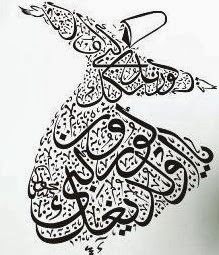I will start this blog with what is already in Web on Malamatiyya.
Let's start with Wikipedia:
The Malāmatiyya (ملامتية) or Malamatis were a mystic group active in the 9th century Greater Khorasan. Their root word of their name is the Arabic word malāmah (ملامة) "blame". The Malamatiyya believed in the value of self-blame, that piety should be a private matter and that being held in good esteem would lead to worldly attachment. They concealed their knowledge and made sure their faults would be known, reminding them of their imperfection. The Malamati is one for whom the doctrine of "spiritual states" is fraught with subtle deceptions of the most despicable kind; he despises personal piety, not because he is focused on the perceptions or reactions of people, but as a consistent involuntary witness of his own "pious hypocrisy".
The Malāmatiyya were first written about by Abu ‘Abd al-Rahman al-Sulamī (d. 1021) in the 11th century AD (4th–5th century AH).[citation needed] Al-Sulami was born in Nishapur in 937 to a prestigious family. His father was on good terms with the early Malamatiyya. When al-Sulami was young his father moved to Makka and left al-Sulami under the care of his maternal grandfather. His grandfather, Abu ‘Amr Isma’il b. Nujayd al-Sulami (d. 971) was the spiritual heir to Abu ‘Uthman al-Hiri (d.910) who is an important figure in the formation of the Malamatiyya.
Al-Sulami wrote works in a variety of genre including hagiography, commentary on the Qur'an and mystical groups' ideology and customs. He is our chief source for information about the Malamatiyyas. Al-Sulami, as a Malamati apologist, claims that the Malamatiyyas are the most elite of the three groups of learned and pious men. The first group are those that study jurisprudence and are legal experts. The second group are people that whom God has given special knowledge. The third group, the most elite of all are the Malamatiyya, those "who are recipients of God's special favors".
His work introduced the Malamatiyya as an Islamic mystical tradition and bolstered the reputation of Nishapuri teachers. Lastly, Sulami defended the Malamatiyya from accusations of nonconformity.
Although al-Sulami's work has contributed the most insight to the Malamati path, he is not the only source of information on the Malamatiyyas. Other works exist like traces of Abu ‘Abdullah Muhammad ibn ‘Abdullah al-Hakim al-Naysaburi al-Bayyi's (d. 1014) Ta’rikh Naysabur. This work lists Shaykhs and scholars from Nishapur that include Malamati-like descriptions.
All of the Malamati values and practices are attempt to humiliate the nafs with every action so that they may work toward a spiritual transformation. The "path of blame" requires that an individual always claims blame and hold his or herself in contempt. In this way, their inner being is directed towards a connection with God, however the interior is kept secret by an exterior that is non-conformist or unruly. "They live on two planes, a double life". In carrying out these principles, the Malamatiyyas did not have a comprehensive philosophy or strict ethical code. Generally, all beliefs and practices of the Malamatiyya were based on directing oneself toward God through contempt of self.
please take a look at the link in Wikipedia for the whole description of the page:
http://en.wikipedia.org/wiki/Malamatiyya

No comments:
Post a Comment